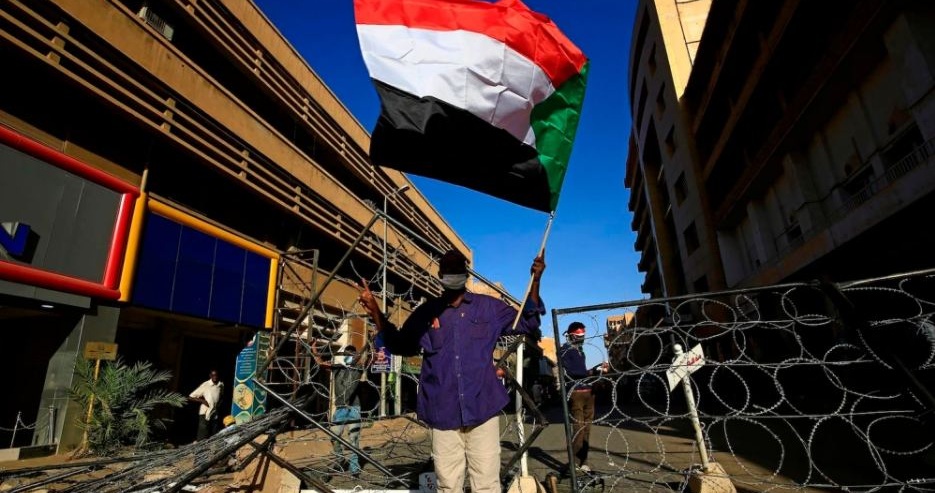Alwaght- In a meeting hosted by Tehran-based Andishe-Sazande Nour Institute for Strategic Studies on foreign role in Sudan crisis, regional and international affairs expert Saadullah Zaree said that until now, Sudan has been the most important bastion of Islamism with a strategic position. He added that given Sudan’s special position and neighborhood of important African countries and its richness with mining and natural resources, any dispute in it captivates attention.
According to Mr Zaree, Sudan has an inspiring role in the Arab world and its links to the Axis of Resistance, its people’s loyalty to the Palestinian cause, its contacts with Iran as the powerhouse of the Resistance camp, and its being a Resistance camp’s bridge to Africa are noteworthy. Also this Muslim country is subject to attention and hostility of the Israeli regime and West countries.
Mr Zaree further commented on Sudan’s importance, saying that this African country is significant due to its closeness to the Red Sea and such countries as Chad, Libya, and Egypt, as well as having advantages like Nile River, fertile lands, and rich gold mines. Therefore, some experts suggest that Sudan even outweighs Egypt in terms of significance.
He further said that over the past 40 years, Western countries and particularly the US have established rebel groups in Sudan through its neighbors and deprived it of peace. It was the Israeli regime that partitioned part of this country. Split leads to the marginalization of a country, and a marginalized country is home to sedition, like what is happening in Darfur, and other problems and crises.
Mr Zaree continued that the initial scheme was to split Sudan in five countries, but this did not happen. Albeit the threat of split remains in place and the country has not passed this stage. We are seeing the same split agenda being followed, but what is observable in general is disunity in Sudan’s vicinity. Saudi Arabia and Egypt back general Abdel Fattah al-Burhan, the army chief and head of Presidential Council, but the Israeli regime and the UAE support General Mohamed Hamdan Dagalo, the head of the Rapid Support Forces.
The Iranian expert also pointed to the destructive role of the West in Sudan, saying that the West pretends it does not want to intervene or support either side of the conflict. It should support the central government, but does not do so, he went on. The Westerners are standing in the middle of Sudan crisis and are justifying the rebellion. They adopt a double-standard policy while there is a government in Khartoum. The US and Israeli policy is to downsize the Muslim countries.
According to Mr Zaree, the BBC news, citing American officials, reported that an al-Burhan-Dagalo deal is unlikely and what is happening in Sudan is an American-Israeli plot. The Iranian expert advised the Sudanese to work out a peace plan for their country and this is likely.
The people of Sudan should know that if the government is impaired, the whole country will be impaired, and in this case, its partition and interventionist of foreign countries gains momentum, according to the expert. If they make no move towards peace, Sudan will go a path Libya went in 2011. Libya has been plagued by clashes for 12 years and there are still no prospects for peace.
Mr Zaree rejected the claim that the Western scenario prefers a war of attrition in Sudan. He compared armies of six Arab countries in the time of crisis, saying Libyan army was not ideological and therefore collapsed. The Yemeni army under President Ali Abdullah Saleh collapsed for the same reason. The same reason of collapse can be applied to Saddam Hussein’s army which was party-related not ideological.
But Egyptian army contained the crisis before slipping out of control. The Syrian army, though initially failed to control the wave of crisis, at the end of road it beat the foreign-backed terrorists. Sudanese army is even more ideological than armies of Egypt and Syria and this is the secret of its success.
Asked for comment on the prospects of Sudan developments, Mr Zaree held that it is likely that Sudan’s conflict will not become erosive with use of internal capacities.
He, however, warned that there is a possibility of partition of the country, which will be dangerous to the Sudanese people. He further warned about Sudan becoming another Libya.



























